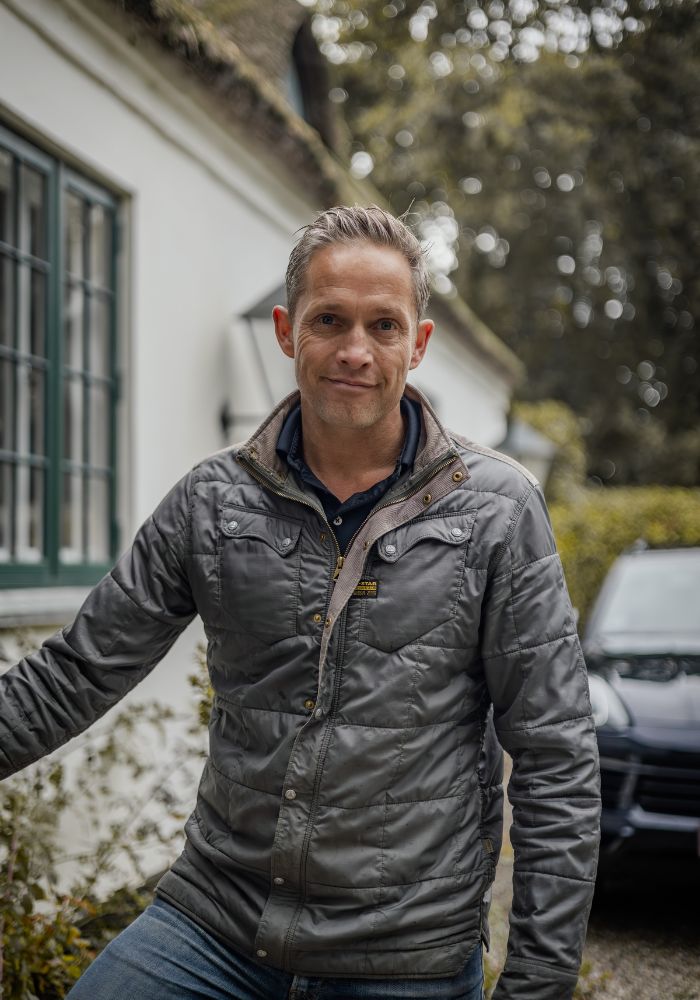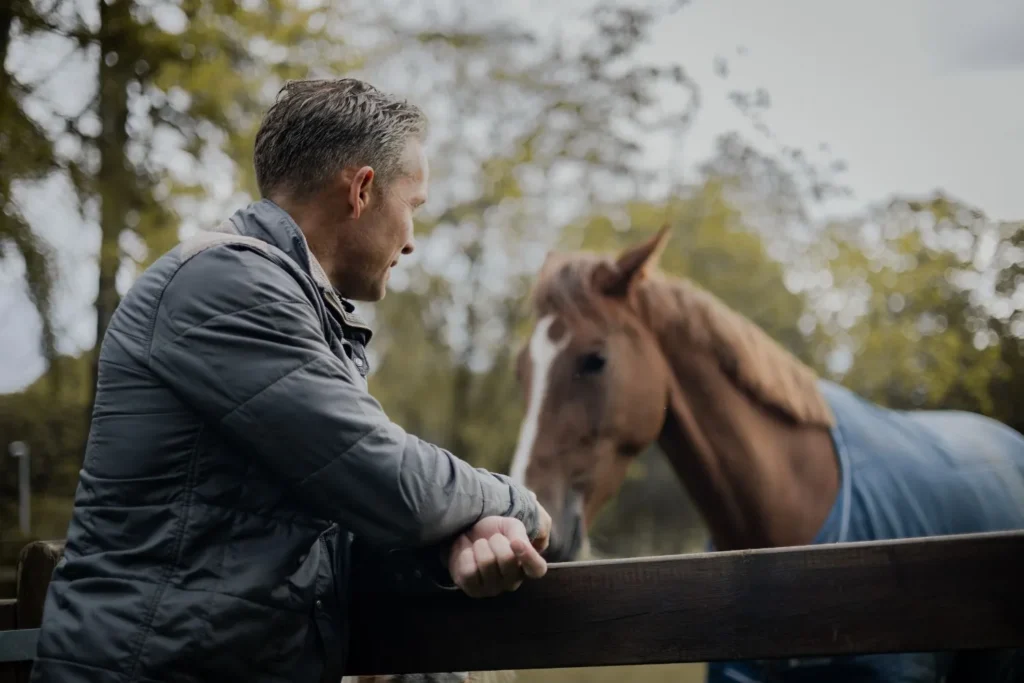Menu

We cannot get around it – mental training. Whether our mental training involves a trained and experienced coach or just simple everyday exercises, it can be a valuable investment for you and your horse’s training. The mental aspect plays an incredibly significant role in everyone’s life, every day. But especially in our interactions with horses, our mental state is crucial. Because with horses, we cannott lie or pretend. They can sense us and feel what we feel, even when we might not be aware of it ourselves.
We’ve spoken with mental trainer Rasmus Bagger, who helps us understand precisely why mental training can be crucial for us as riders. This applies not only to those who want to perform well in competitions but also to those who want a stronger bond with their horses.

Many of you might be familiar with the name Rasmus Bagger, as he has been in the industry for more than 25 years. He has trained a total of 140 mental trainers, although not all of them work in the equestrian field. The evidence that a mental trainer can be paramount for performance is clear. Rasmus Bagger has, in one way or another, been involved in the mental training of most top riders in the Nordic region, including dressage, show jumping, and Icelandic horses. Danish top dressage riders like Cathrine Laudrup-Dufour, Daniel Bachmann Andersen, and Nanna Skodborg Merrald have all used Rasmus Bagger as a trainer in various ways. Additionally, Rasmus Bagger has trained many Swedish show jumpers, who has excellled in international competitions. This naturally piques our curiosity. What is it he can do, and why is mental training so important?
When we visited Rasmus Bagger at his home north of Copenhagen, a deep sense of tranquillity was the first thing we noticed. The property borders a forest and is, as Rasmus Bagger described it, “a horse property squeezed into a wealthy Copenhagen resident’s summer house.” Rasmus Bagger and his wife purchased the property five years ago and are still working on making it their own. But with Northern Europe’s largest rhododendron, a pond, and vast green fields with wooden fences, you can imagine the aesthetic appeal. The peace you feel is one of the most crucial elements in Rasmus’ philosophy of mental training:
Horses have a heightened sense of what is happening around them, and since horses are prey animals, they associate unrest and insecurity with survival. Therefore, it is vital to always maintain composure when with your horse, so both the horse and rider have positive experiences. This applies to competitions as well, as Rasmus says:
Well, you need to have some tools to help you, as most people can be thrown out of course if things do not go as planned. Having clear structures on how to react, regardless of the situation’s outcome, can help us maintain composure and stay calm. And most importantly, a positive mindset, says Rasmus Bagger. But you have to be willing to view the world differently, and that can be challenging because people often feel comfortable sticking with their usual mindset and retaining the same action plans as usual.
It can be challenging to do alone and without any experience or know-how. This is where a mental trainer like Rasmus Bagger comes into the picture. You need a team to optimize your interactions and performances with your horse, which includes professionals like veterinarians, farriers, and other practitioners. Regardless of the country you are in:

“Mental training transcends all borders. There are different horses, breeding associations, training methods, and instructors, but a human is a human, and a horse is a horse, no matter the country or culture you’re from,” explains Rasmus Bagger. The psychology of horses and humans does not differentiate across national boundaries.
Rasmus Bagger is recognized as a mental trainer worldwide and has travelled to various corners of the world to help different riders enhance their interactions and performances with their horses. This includes countries like Sweden, Norway, Finland, England, Germany, France, Italy, Spain, Portugal, Switzerland, Austria, Greece, Australia, Canada, and the United States.
Mental training has an impact. There’s no doubt about that, and Rasmus Bagger is certain about his work:
“It doesn’t feel like work! I love it and would never trade it for anything else. The people I meet are so passionate and motivated that it makes my job fantastic.“
You are always responsible for your thoughts, feelings, and actions when in the saddle.
It’s your job to cultivate positive thoughts. Focus on what works or what you can appreciate (even in challenging situations), feelings, and actions (behaviour).
In short: “a good mood equals good riding – a bad mood equals bad riding” because the horse is influenced by your energy to be either cooperative or seeking security.
Do you have a mental trainer? Would you consider it? Or do you have different tools? Feel free to share your story with us.